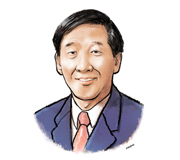Tragedian-in-chief
 WASHINGTON ― President Barack Obama recently addressed the White House correspondents’ dinner as comedian-in-chief at the capital’s Hilton Hotel. The annual gathering has been held since 1920 to strengthen communication between the presidential office and journalists. It has a rich tradition of pertinent humor and amusing dialogue between the incumbent president and the White House press pack.
WASHINGTON ― President Barack Obama recently addressed the White House correspondents’ dinner as comedian-in-chief at the capital’s Hilton Hotel. The annual gathering has been held since 1920 to strengthen communication between the presidential office and journalists. It has a rich tradition of pertinent humor and amusing dialogue between the incumbent president and the White House press pack.
It is traditionally held on the last Saturday of April and participants raise scholarship funds for journalism students. Fifteen presidents have attended the event.
The annual dinner dialogue has an unwritten code: The president and correspondents avoid fielding questions and answers on serious issues. Guest speakers give comic speeches, singling out individuals to be roasted, especially the president. The gathering has been dubbed the “Nerd Prom,” with the president chairing the evening’s comic event.
Obama’s pointed jokes outshone the mixed evaluation his three-and-half-year administration has received. Jay Leno and David Letterman might have envied Obama’s mastery of deadpan humor and his observational and improvisational comedy routine.
He poked fun at himself over the criticism that as a boy he ate dog meat in Indonesia. “I took (ate) it because my stepfather always told me, It is a boy-eat-dog world out there,’’ he quipped.
He also joked about Secretary of State Hillary Clinton and the prostitution scandal involving his Secret Service agents.
“Four years ago, I was in a brutal primary battle with Hillary Clinton,’’ Obama said. “Four years later, she won’t stop drunk-texting me from Cartagena,’’ the Caribbean beach resort city in Colombia where Secret Service agents allegedly hired prostitutes. He cast the scandal in a humorous light `I have to get the Secret Service home in time for their curfew.’’
He also made gags about business tycoon Donald Trump who pressured the President to release his long-term birth certificate.
Obama teased his rival Mitt Romney. He recalled a political advertisement by the Newt Gingrich campaign that Romney had once put his family dog in a cage and perched it on the top of his car.
He helped the audience visualize Romney putting a dog carrier on top of Air Force One and promoting dog freedom, while warning of Obama’s policy of dog socialism.
Watching the program, Koreans might recall the plight President Lee Myung-bak faces. Lee is now the tragedian-in-chief. Like his predecessors, he has seen investigations and arrests of his power-hungry cronies, including former Korea Communications Commission Chairman Choi Si-joong and former Vice Knowledge Economy Minister Park Young-joon. His elder brother Lee Sang-deuk faces investigation.
Since 1980, Korean presidents have seen an unhappy ending. First of all, their family members, including sons, brothers or relatives, were, without exception, jailed for taking bribes. Key campaign managers and cronies were put behind bars for peddling influence, selling licenses, and positions. In return for helping their boss win the presidential race, they monopolized key government and public posts and subcontracted the posts under their control to their cronies again. They formed an extensive corrupt network, crippling the government’s operations, making the president increasingly out of touch with the street reality and alienating the electorate. Their corruption has remained submerged until the president entered the twilight period of his five-year term.
These tragic events are being repeated due to the current fragile check and balance mechanism in the three branches of the government.
The president is powerful. Prosecutors are unwilling to risk their positions by digging into the corruption of those in power. They are docile to those in power but strong to those who had power in the past. Few could say that the judiciary is free from the influence of the president.
The National Assembly has always been in a confrontational mode. All lawmakers toe the line of their party. Lawmakers are unable to make the judiciary and the prosecution fully independent.
The current imperial presidential system must be subject to a critical review. The president should pick his deputies according to merit, not nepotism. Professional career bureaucrats, not campaign managers and cronies, must assist the president. This would prevent cronies from privatizing public posts for personal gains. Those in power ultimately become victims of their winner-takes-all mentality. Power sharing is necessary. Intellectuals believe the Korean media have compromised their watchdog role.
Ironically, the convicted cronies have led a wealthy life after serving shortened-jail terms. Despite high-profile media coverage of their crimes, these bribe-takers later buy expensive lawyers to have their sentences shortened or commuted. Many of them are pardoned before their jail terms end. Confiscation of their ill-gotten wealth is elusive. Selling licenses, positions and influence are still lucrative at least economically.
Korea has yet to institutionalize a system of preventing the president from becoming the tragedian-in-chief during the final year in office.
Hopefully, the Korean president will become the comedian-in-chief at least once a year and make people happy through his humorous monologues. The president should no longer prepare an apologetic statement for the crimes of his cronies and family members. <Korea Times/Lee Chang-sup>




